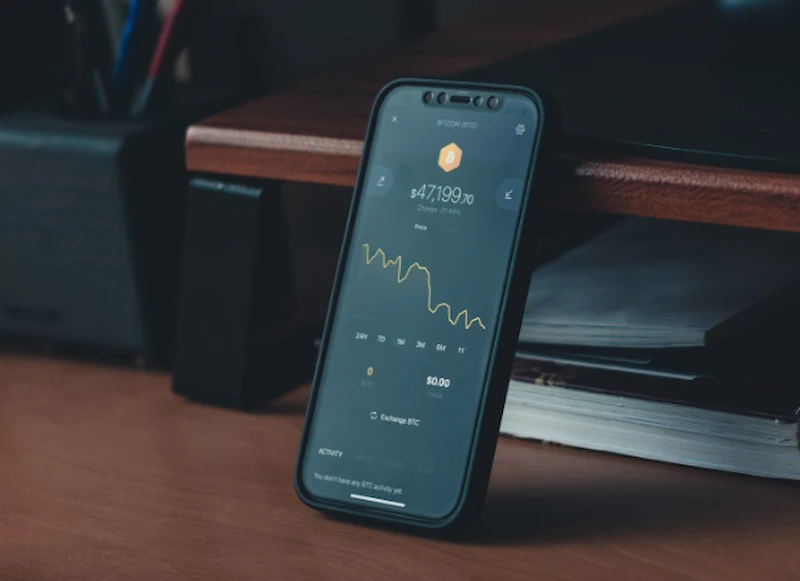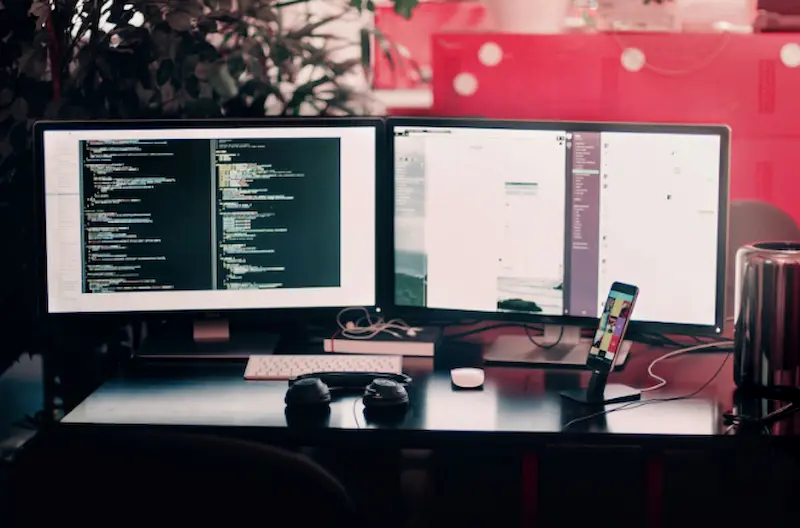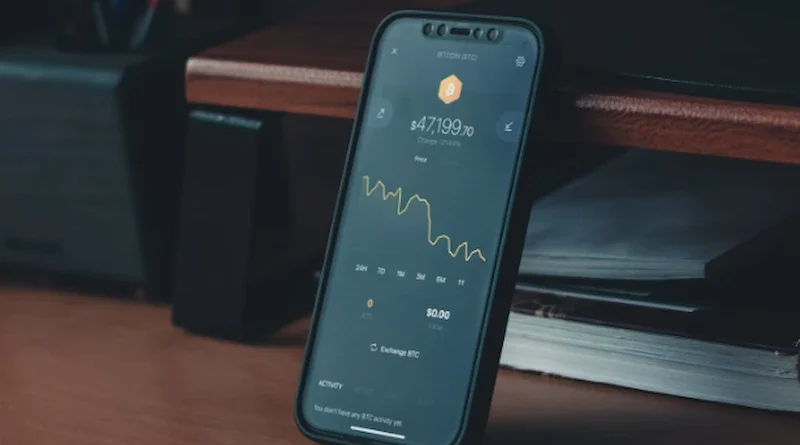How to Hire Blockchain Developers in 2025?
As blockchain technology continues evolving, the demand for skilled developers is surging. In 2025, hiring these professionals will require a strategic approach, considering the rapid technological advancements and the competitive landscape of talent acquisition. This article explores how to effectively hire blockchain developers, focusing on the skills needed, potential employers, and recruitment strategies.
What Is Blockchain Development?

Blockchain development involves creating applications and systems that utilize blockchain technology. Blockchain is a decentralized digital ledger that records transactions across many computers. This technology ensures that records cannot be altered retroactively without affecting all subsequent blocks, which enhances security and trust. Hiring blockchain developers enables companies to leverage cutting-edge solutions that accelerate their growth. Also, an Offshore Development Center offers a cost-effective solution for hiring blockchain developers, providing dedicated teams to manage your blockchain projects efficiently.
Who Hire Blockchain Developers for Various Projects? Benefits of Adopting Blockchain for Your Business
Various sectors increasingly recognize blockchain’s benefits and seek to hire remote blockchain developers. These include:
- Financial Services: Banks and fintech companies leverage blockchain for secure transactions and fraud prevention.
- Healthcare: Organizations use blockchain for secure patient data management and sharing.
- Supply Chain Management: Companies implement blockchain for enhanced transparency and traceability in logistics.
Hiring blockchain developers and adopting blockchain can transform business operations:
- Blockchain is appealing to consumers and organizations because it is anonymous, shielding users from identity theft.
- All transactions are recorded on a public ledger, making them visible to all stakeholders.
- By eliminating intermediaries, businesses can reduce transaction costs.
Companies that Use Blockchain
Numerous leading companies have integrated blockchain into their operations:
- IBM: Utilizes blockchain for supply chain solutions.
- Microsoft: Offers Azure Blockchain Service to help businesses build on the technology.
- Walmart: Implements blockchain to track food products from farm to store.
Advantages and Challenges of Blockchain Development for Businesses
Blockchain technology has emerged as a transformative force across various industries. It offers numerous advantages while also presenting unique challenges. Understanding these benefits and hurdles is crucial for businesses considering adopting blockchain solutions.
Advantages
- Trust and Transparency
One of blockchain’s most significant advantages is its ability to foster trust among parties that may not have a preexisting relationship. By providing a decentralized ledger that records transactions transparently, all participants can verify data without relying on a central authority. This transparency is precious in sectors like supply chain management, where consumers can trace the origin of products, ensuring authenticity and ethical sourcing.
- Enhanced Security
Blockchain technology utilizes cryptographic techniques to secure data, making it highly resistant to tampering and fraud. Each transaction is linked to the previous one, creating an immutable chain complex for hackers to alter. This level of security is especially beneficial in industries such as healthcare, where protecting sensitive patient information is paramount.
- Cost Reduction
Blockchain can significantly reduce transaction costs by eliminating intermediaries. Businesses can engage in direct peer-to-peer transactions without the need for banks or other financial institutions, which often charge fees for their services. This cost efficiency extends to various operations, including cross-border payments and supply chain logistics.
- Increased Efficiency
Blockchain streamlines processes by automating tasks through smart contracts — self-executing contracts with the terms directly written into code. This automation reduces the need for manual intervention, speeds up transactions, and minimizes errors associated with human involvement. For example, real estate transactions can be completed more quickly without extensive paperwork and intermediary involvement.
- Improved Traceability
Another critical advantage of blockchain is tracking assets throughout their lifecycle. Each transaction is recorded in a way that allows stakeholders to trace an asset’s history easily. This feature is handy in industries like food safety, where companies can monitor the journey of products from farm to table, ensuring compliance with safety standards.
Challenges
- Adoption Barriers
Despite its potential, the widespread adoption of blockchain faces several barriers. Many organizations hesitate to implement this technology due to a lack of understanding or skepticism about its benefits. Moreover, blockchain requires a network effect — meaning that all parties involved must adopt the technology to be effective. This interconnectedness can slow down adoption rates.
- Skills Gap
There is a notable shortage of skilled professionals who understand blockchain technology deeply enough to implement it effectively. The competition for talent in this area is fierce, making it challenging for businesses to find qualified developers and engineers to design and maintain blockchain systems.
- Regulatory Uncertainty
The regulatory landscape surrounding blockchain is still developing, leading to uncertainty for businesses looking to adopt this technology. Companies must navigate a complex web of regulations that vary by jurisdiction, which can complicate implementation efforts and deter investment in blockchain solutions.
- Interoperability Issues
Many existing systems within organizations may not be compatible with blockchain technology. Achieving interoperability between new blockchain solutions and legacy systems can be technically challenging and resource-intensive, potentially delaying deployment and increasing costs.
- Scalability Concerns
As more transactions are added to a blockchain network, issues related to scalability may arise. Many blockchains struggle with processing large volumes of transactions quickly enough to meet business needs without sacrificing speed or efficiency.
- High Implementation Cost
The cost of blockchain is higher than that of a conventional database. Businesses must also properly plan and integrate blockchain technology into their operations.
What Does a Blockchain Developer Do?

A blockchain developer is critical in designing, implementing, and maintaining blockchain systems and applications. As the demand for blockchain technology continues to grow across various industries, the responsibilities of these developers have expanded, requiring a diverse skill set and a deep understanding of both technical and business aspects. Below are the primary functions and duties of a blockchain developer.
Designing Blockchain Solutions
Skilled blockchain developers are responsible for designing the architecture of blockchain networks. This includes selecting the appropriate consensus mechanisms (such as Proof of Work or Proof of Stake), defining data structures, and determining how transactions will be processed. They must ensure the design aligns with the business’s needs while maintaining scalability and security.
Developing Smart Contracts
Smart contracts are self-executing contracts with terms directly written into code, and they are a fundamental component of many blockchain applications. The best blockchain developers create these contracts to automate processes and enforce agreements without intermediaries. This involves writing, testing, and deploying smart contracts on platforms like Ethereum, ensuring they function correctly and securely.
Building Decentralized Applications (dApps)
Developers also focus on creating decentralized applications (dApps) on blockchain networks. These applications leverage blockchain’s unique properties, such as transparency and immutability, to provide users with innovative solutions. Blockchain developers work on the front-end (user interface) and back-end (server-side logic) components of dApps, ensuring seamless interaction with the blockchain.
Maintaining Blockchain Networks
Once a blockchain solution is deployed, developers are tasked with maintaining its operation. This includes monitoring network performance, troubleshooting issues, and implementing necessary updates or enhancements. By regularly auditing codes and protocols, they also ensure the network remains secure from potential threats.
Conducting Research and Development
The field of blockchain technology is rapidly evolving, which requires developers to stay informed about new trends, tools, and best practices. Experienced blockchain developers often research to explore innovative solutions or improvements to existing technologies. They may also contribute to open-source projects or collaborate with other developers in the community to share knowledge and advancements.
Collaborating with Cross-Functional Teams
Effective communication is essential for blockchain engineers, who often work closely with other teams, such as product management, legal, and compliance departments. Collaborating with these teams helps ensure blockchain solutions meet business objectives while adhering to regulatory requirements.
Testing and Debugging
Before launching any blockchain application or smart contract, thorough testing is crucial to identify vulnerabilities or bugs that could compromise security or functionality. Blockchain experts conduct rigorous testing procedures, including unit, integration, and performance tests, to ensure their solutions are robust and reliable.
Are Blockchain Developers in High Demand?
Yes, the demand for blockchain app developers far exceeds supply. As more industries explore blockchain’s potential, companies compete to attract top talent in this niche field. This trend will continue into 2025 as businesses seek to innovate through technology.
How Do You Hire Blockchain App Developers?

Given the unique skill set and expertise needed in this rapidly evolving field, hiring blockchain app developers requires a strategic approach. Here’s a comprehensive guide to navigating the hiring process effectively and finding the right talent for your blockchain projects.
Define Your Project Requirements
Before initiating the hiring process, clearly outline your project requirements. Consider factors such as:
- Project Scope: What specific blockchain applications or features do you need to be developed?
- Technology Stack: Determine which blockchain platforms (e.g., Ethereum, Hyperledger) and programming languages (e.g., Solidity, JavaScript) are relevant to your project.
- Timeline and Budget: Establish a timeframe for project completion and a budget for hiring developers.
Create a Comprehensive Job Description
Crafting a compelling job description is crucial to attracting qualified candidates. Ensure your job post includes the following:
- Company Overview: Briefly describe your company’s mission and the role of blockchain technology in your business.
- Required Skills: List essential skills such as proficiency in programming languages, experience with smart contracts, and knowledge of blockchain security protocols.
- Experience Level: Specify whether you are looking for a junior, mid-level, or senior software developer.
- Responsibilities: Outline the tasks the developer will be responsible for, such as designing blockchain architecture or developing decentralized applications (dApps).
- Employment Type: Indicate whether the position is full-time, part-time, or contract-based.
Utilize Multiple Recruitment Channels
To maximize your chances of finding suitable candidates, leverage various recruitment platforms:
- Freelance Websites: Freelance platforms like Upwork and Toptal allow you to connect with freelance blockchain developers who can work on specific projects.
- Job Boards: Post your job listing on popular job boards like LinkedIn, Indeed, and Stack Overflow Talent to reach a wider audience.
- Blockchain Communities: Engage with online communities and forums dedicated to blockchain technology (e.g., GitHub, Reddit) where blockchain specialists often showcase their work.
Screen Candidates Thoroughly
Once you receive applications, implement a thorough screening process to identify the best candidates:
- Initial Screening: Review resumes and portfolios to assess candidates’ relevant experience and skills.
- Technical Assessment: Conduct coding challenges or technical tests evaluating their blockchain development proficiency. This could include tasks like writing smart contracts or solving specific problems related to blockchain technology.
Conduct In-Depth Interviews
Interviews are essential for assessing candidates’ technical knowledge and cultural fit within your organization. Consider asking:
- About their experience with specific blockchain platforms.
- How they approach security concerns in blockchain development.
- Examples of past projects they have worked on and the challenges they faced.
Evaluate Soft Skills
In addition to technical expertise, soft skills are vital for successful collaboration within your team. Hire blockchain engineers who demonstrate:
- Strong communication skills to articulate complex concepts clearly.
- Problem-solving abilities that show how they approach challenges in development.
- Adaptability to keep up with the fast-paced changes in blockchain technology.
Consider Hiring Models
Decide whether you want to hire developers as full-time employees, part-time contractors, or hire freelance blockchain developers based on your blockchain project needs:
- Full-Time Employees: Ideal for long-term projects where ongoing support and integration within your team are crucial.
- Freelancers/Contractors: Suitable for short-term projects or specific tasks requiring flexibility.
Onboard Effectively
Once you’ve selected your developers, ensure a smooth onboarding process by:
- Providing them with access to necessary tools and resources.
- Communicating project goals and expectations.
- Facilitating introductions with other team members to foster collaboration.
FAQ — Hire Remote Blockchain Developers
How can I find blockchain developers?
Finding qualified candidates can be achieved through:
- Online job platforms.
- Industry-specific forums.
- Networking within tech communities.
How much does it cost to hire blockchain developers?
The cost varies widely based on experience, location, and project complexity. On average, hiring a skilled blockchain developer can range from $80 to over $200 per hour. The average blockchain developer salary is $111,845 annually in the USA, but top blockchain developers earn less in Eastern Europe while delivering top-notch results.
Where to hire blockchain software developers?
Consider these platforms:
- Leading outstaffing companies.
- Freelance websites (e.g., Upwork).
- Dedicated tech recruitment agencies.
- Professional networking sites (e.g., LinkedIn).
What skills/requirements to look for when hiring a blockchain developer
Key skills include:
- Proficiency in programming languages such as Solidity, JavaScript, or Go.
- Experience with various blockchain platforms (e.g., Ethereum, Hyperledger).
- Understanding of cryptography and data structures.
What are the limits of blockchain?
While powerful, blockchain has limitations such as:
- Energy consumption in proof-of-work systems.
- Limited transaction throughput compared to traditional databases.
- Complexity in integrating with existing systems.
What applications use blockchain?
Blockchain is utilized in various applications, including:
- Cryptocurrencies (e.g., Bitcoin).
- Supply chain tracking.
- Smart contracts.
- Decentralized finance (DeFi) platforms.
Bottom Line
As we move into 2025, businesses must adapt their hiring strategies to attract top talent in the rapidly evolving field of blockchain development. Companies can successfully integrate this transformative technology into their operations by understanding what it takes to hire skilled professionals — identifying specific needs, leveraging multiple recruitment channels, and evaluating candidates thoroughly. Whether looking to find blockchain developers or hire remote talent, being informed about blockchain industry trends will position your organization at the forefront of innovation.
Visit the rest of the site Business Insiderrs for more interesting and useful articles. Thank you!

